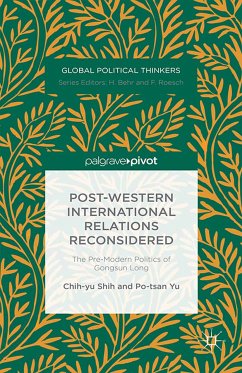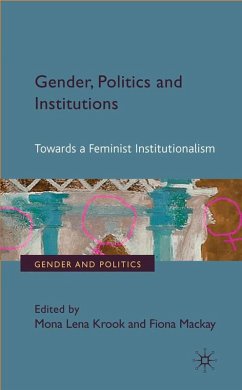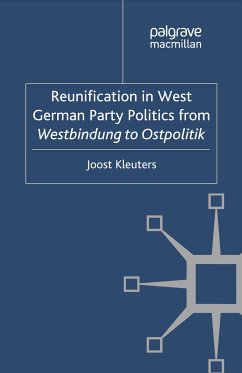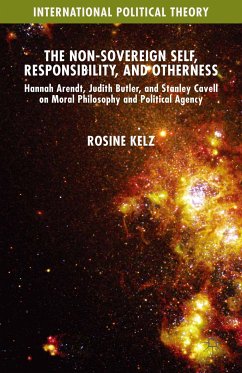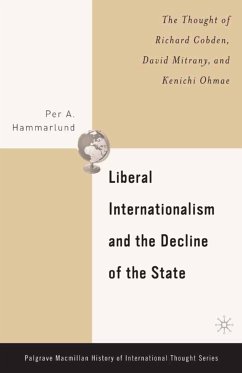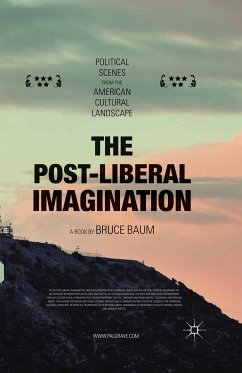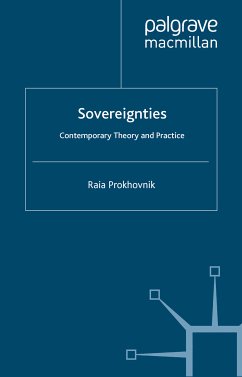
Liberal Internationalism (eBook, PDF)
Theory, History, Practice
Versandkostenfrei!
Sofort per Download lieferbar
80,95 €
inkl. MwSt.
Weitere Ausgaben:

PAYBACK Punkte
40 °P sammeln!
This study provides an original conception of liberalism that accounts for its internal contradictions and explains the current crisis of liberal internationalism. Examining the disjuncture between liberal theory and practice, it offers a firmer grasp on the historical role of liberalism in world politics.
Dieser Download kann aus rechtlichen Gründen nur mit Rechnungsadresse in A, B, BG, CY, CZ, D, DK, EW, E, FIN, F, GR, HR, H, IRL, I, LT, L, LR, M, NL, PL, P, R, S, SLO, SK ausgeliefert werden.





